
How Much Does It Cost to Build a Shed – Full Breakdown 2025
Imagine having a place that’s only a few steps away from your back door, that can be dedicated to your creative space. Building a shed can be a great addition
This is Not a Legal Survey


Contributing Writer | Architecture & Design Writer
Starting a construction project requires a lot of planning and knowledge, but sometimes even with a good plan, things can go the other way around and mistakes can happen.
To prevent different types of construction problems, we will discover which are the most common ones. Understanding and knowing these mistakes is key to a successful building process. Stay with us and let’s discover everything about commonly repeated construction mistakes.
Table of Contents
Toggle
Accidents can always happen, they are unpredictable and they can have bad effects on property, workers, and the public. Because of this, it is highly recommended to follow all the rules regarding safety.
Modern technologies help with ensuring safety, such as using construction wearables that monitor the heart rate of workers and help in assessing whether they are capable of working on-site at that moment. Construction always carries a lot of risks, but with suitable workwear, equipment, professional workers, and experienced contractors, accidents can be reduced and the project can run more safely.
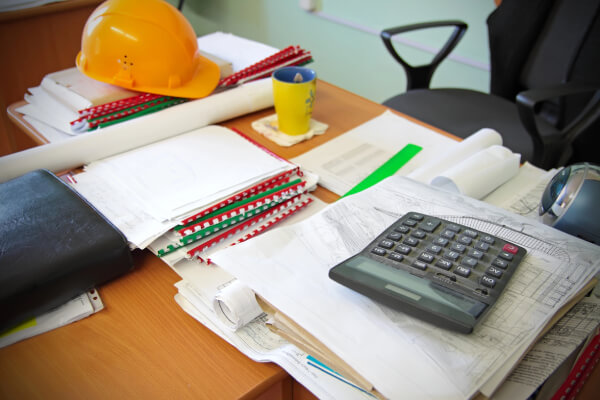
Cost miscalculation is a very common construction mistake that often has a lot of impact on project outcomes. Underestimating expenses can lead to budget overruns, delays, and lower project quality. This type of mistake occurs when the initial estimates are bad and don’t include hidden costs and the overall market. To avoid cost miscalculation, you will need accurate estimations before the start of a project.
Project managers need to provide you with all the necessary information regarding potential expenses such as materials, labor, permits, as well as unforeseen costs. For example, even small-scale projects like sheds can go over budget without proper planning—our article on shed building costs breaks down what to expect.
During the construction project keep on checking your budget and costs to ensure financial stability and successful completion of the building process.
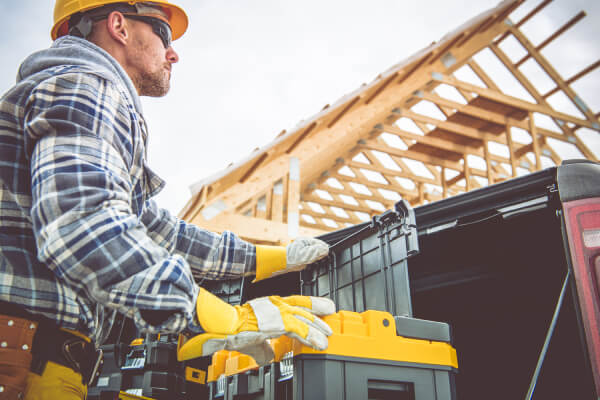
The first thing you need to check when getting a contractor is whether he has a license. Contractors who are not experienced and don’t have a license can put you at risk if anything goes wrong during the project. A good contractor will show you collaboration and flexibility and he’ll try to stay within the budget you have.
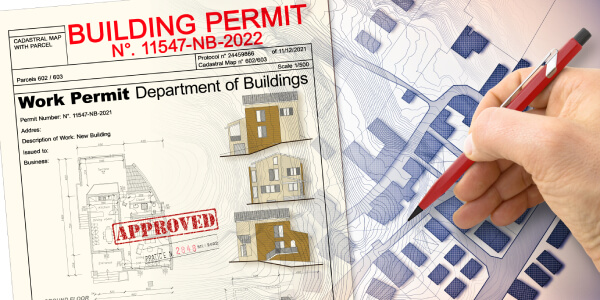
In most cases, there is no building without a building permit. If you don’t have the proper permits, your local building department will send you a stop work order which will delay your project and cost you money.
Before starting a project, be sure to ensure all the necessary permits so that things can run smoothly. Getting a permit requires some time, and building permit costs can be pricey sometimes, so be sure you have this in your cost calculations when constructing.
Keep in mind that there will probably be specific documents that you will need to obtain before applying for a permit, such as a site plan for permits. Because of this, communication with your contractors is the key to a successful permitting process and dealing with local government.

Not following the planned construction order is one of the biggest construction mistakes because it disrupts the logical progression of tasks. It can cause delays, inefficiency, and rework.
Imagine a contractor putting siding on a residential project before installing wiring and electrical boxes. This can cause problems, and the siding will need to be demolished to cater to the wiring. If something like this would happen, it could cause project costs and also lead to waste of material.

It is crucial to get more than one estimate because going only with the first one, some details and unpredicted things may occur during the process. If this happens, it can cause project overruns and delays.
With multiple estimates, you will be able to find what is the best price for your specific project. Whether it comes to a big project, like the cost of building a house, or a smaller one like deck building prices. Keep in mind that you need to assess a contractor’s reputation, experience, and the warranty they offer for the job because, with this, you can get the best estimate for your project’s needs.
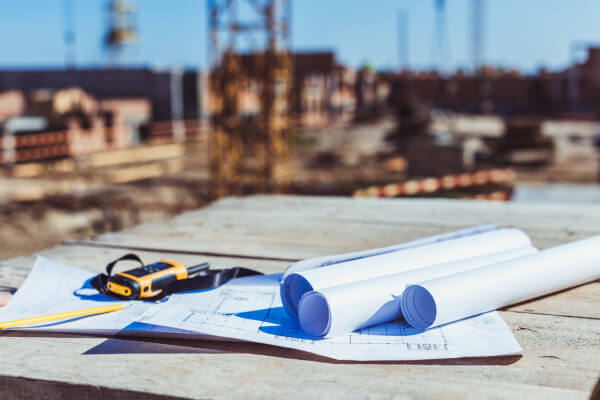
Establishing a completion date is very important for a construction project. Without having clear and realistic timelines, the construction process lacks structure and accountability. Neglecting a completion date can cause a lot of problems, and that’s why project managers need to address all the tasks efficiently and set a proper date for finishing a project.
For solving this type of problem all of the construction factors need to be considered at the beginning before the process even starts. There are some cases when it’s okay to adjust the completion date, such as bad weather conditions or other unpredictable things because that can slow down the whole process. Although it can happen, it’s very rare and a good contractor will make sure that the project will be finished on time anyway.
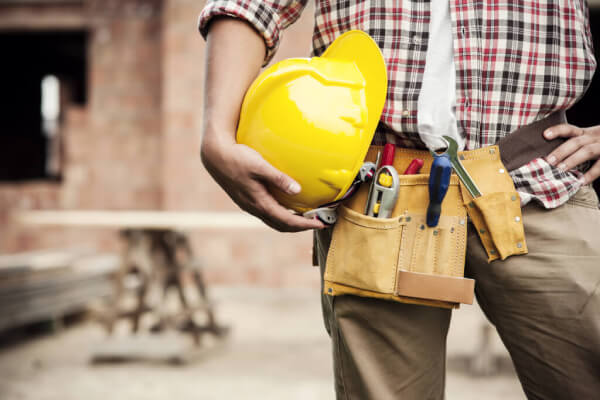
Using outdated processes during construction increases errors and compromises the quality of the project. Using data, software, and applications that are connected poorly is not helpful for a contractor. A contractor should follow the demands of the construction industry and embrace new approaches to enhance sustainability. It’s necessary to use updated techniques to help keep a project safe and boost efficiency.

Because of the amount of work, contractors sometimes sign construction papers and contracts without carefully reading them or knowing what they say. This happens very often, so it’s always crucial to make sure both you and your contractor read all the documents and contracts regarding the project.

Before starting any construction project, be sure to do some research to check out the potential return on investment. Some home additions can increase home value, but some things can also decrease it at the same time.
It’s good to have a trustworthy realtor who will check what is the best for your specific project if you eventually decide to sell the house. A realtor is the best when it comes to evaluating the value of your renovation because he has access to databases of home sales in your area, and knows the market and what kind of homes and features are sold the most.

One of the common construction mistakes is bad communication. Misunderstandings can happen between the project owner and contractors which then can cause delays and other construction problems. If there are any questions or uncertainties regarding the project, the client should always feel free to ask his contractor and architect about it.
The project manager should always set up proper communication between everyone working and part of it. The client won’t be on-site all the time, so, the project manager needs to have all contacts and information regarding the project. This will help avoid expensive delays and also keep the project on track.
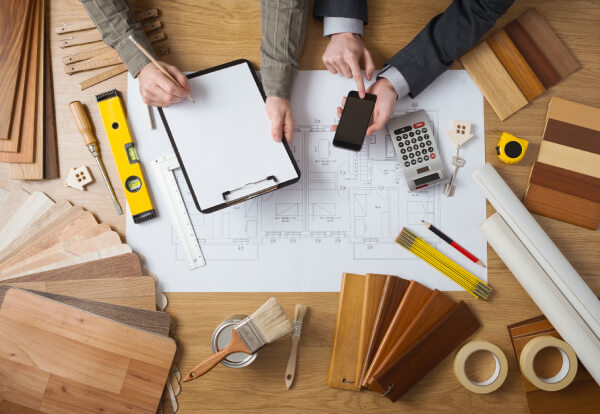
Risk management is very important for a successful project, and the contractors always need to think a bit in advance. Different risks are always present during construction, so it’s important to have detailed architectural drawings for unforeseen situations.
Builders are sometimes caught off-guard by unpleasant circumstances and it’s better to have this in mind so the contractor can know how to solve it. Having a plan and even a budget for these types of situations can save you a lot of stress, time, and money.
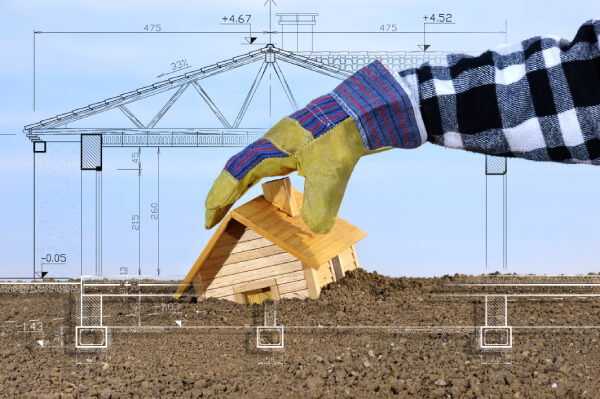
Dealing with and managing construction mistakes is very important for ensuring a smooth completion of a project. Here are some tips on how to handle any errors:
Mistakes occur always, it’s a part of the process and how you handle them is important. With common sense, having a good contractor, and a team of experienced workers, errors can be taken care of and your project will stay on the right track.
Now that we know what are the most common construction mistakes, we can say that by learning from these errors, we can build ourselves with knowledge and have a better approach when it comes to new projects in the future. Respecting the rules and regulations during construction is very important because it ensures a legal and safe building process.
Knowing the most common problems will help us learn to navigate through the complexities of the building process, commit to continuous improvement, and incorporate lessons learned into every next project.
For more information on effective project planning and construction, explore our detailed site plan, which will provide you with additional insights into your construction work and help you for a successful building process in the future.
Learn more about our contributor:

Contributing Writer | Architecture & Design Writer
During my career, I’ve written articles on interior design, home remodeling, and renovation with an emphasis on money-saving tips and DIY ideas. It’s been a rewarding journey and I am thrilled to continue helping others bring their architectural visions to life.

Imagine having a place that’s only a few steps away from your back door, that can be dedicated to your creative space. Building a shed can be a great addition

Building a deck is a great way to transform your outdoor space into a more appealing and functional area for relaxation and entertainment. To ensure the deck’s safety and durability,

Are you looking to modernize your pool with an outdated design and want to improve its functionality? If so, you’re in the right place. Imagine transforming your basic swimming pool